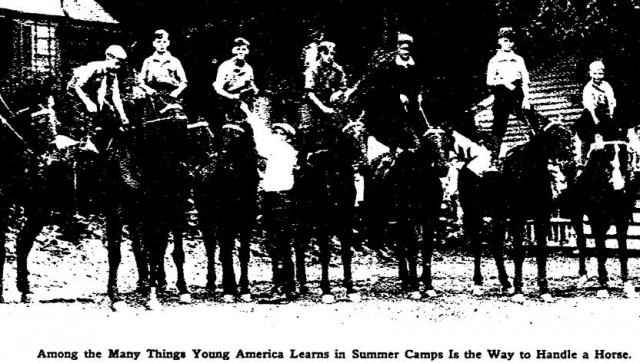That Sleeping Bear Knows You're There

“Hibernating bears are more alert than they appear, according to a study showing that their heart rates increase in the presence of a silent intruder even though they appear to be fast asleep…. One of the most intriguing discoveries was that hibernating bears appeared to be aware of humans approaching their winter dens even when every effort was made to ensure that the sleeping bears were not disturbed by any loud noises. Their heart rates increased in preparation for a sudden attack.”
Photo by Anan Kaewkhammul, via Shutterstock
Sociologists Still Read 'Rolling Stone'
“A provocative new study tends to confirm that the portrayal of women in the popular media over the last several decades has become increasingly sexualized, even ‘pornified.’… The new study uses the covers of Rolling Stone magazine from 1967 to 2009 to measure changes in the sexualization of men and women in popular media over time.”
The Tea Party Folks Are Mostly Just Christian Soldiers

“Next to being a Republican, the strongest predictor of being a Tea Party supporter today was a desire, back in 2006, to see religion play a prominent role in politics. And Tea Partiers continue to hold these views: they seek ‘deeply religious’ elected officials, approve of religious leaders’ engaging in politics and want religion brought into political debates. The Tea Party’s generals may say their overriding concern is a smaller government, but not their rank and file, who are more concerned about putting God in government.”
— Much as we described to you in vivid detail yesterday, the hard data also shows that the Tea Party has little to do with economics or politics: its goal is just to put Jesus Christ front and center in schools, the workplace and the government.
A History of the New York Times, Summer Camp and Rich People
by Nate Hopper

Right now, many young summer campers are frolicking beneath the open sky, the wind on their faces perfumed by the rough fragrances of pine and their parents’ jet exhaust; on the horizon, the mountains shrug, “whatevs.” Their families will pay one-fifth of the median national household income so they can go “rough it.” And The New York Times has been on it.
The modern tales are ghastly — and not just that now-infamous tale of chartered planes and rural runways. Because of the economy, some owners have to deal with lower enrollment this year; in July, the Times told the story of one camp that hit only 98 percent capacity this summer, which is up from 95 percent in 2009, but down from 100 percent in 2008. “With enrollment at the three camps nearly full,” — the owner has two others — “the business over all remains profitable… but he does say that profit margins are narrowing in the face of increased expenses for new buildings and new programs, along with the rising cost of food and gas for water-skiing boats.” Ah, the pangs of expansion and water sports. And then there’s the not-so-dirt-under-your-nails-y, like Fashion Camp NYC and the one where goers design videogames, build robots and write code — which could be awesome, could be horrible.
This coverage of ritzy camps appears to be — according to a review of the archives dating back to 1923 — a new angle for the annual Times summer camp beat.
Sure, in 1950, they had a man opine about how television ruined the refined unrefined-ness of summer camp, saying, “too many camps are now glorified country clubs.” (Glorified, indeed.) And yes, they sometimes chronicled the expanding upper-limit prices of a prelapsarian escape to the wilderness during the ’60s and ’70s, calling some options “plush.”
But mostly the Times has — almost sadly, since it’s so fun to riff on — covered summer camp tragedies and safety measures, or spent ink raising funding for needy camps (as the Times has zealously done since that fateful day in 1911, when publisher Adolph S. Ochs “went out for a walk after a big turkey dinner, and encountered a shabbily dressed man on the street”) or the YMCA and the Boy’s Scouts (Girl’s Scouts less); it has provided guides for choosing between the many options (you know you’re supposed to start looking in the winter, right?) and proper outfitting.
In 1988, they published a story about free summer camps for homeless children between ages six and ten; and, of course, camp crops up in the Neediest Cases mini-profiles, such as this one in ’96; then, three years later, there’s this on the closing of a camp for disabled children.
In ’98 they wrote about New York City Schools Chancellor Rudy Crew’s idea to send 10,000 public-school kids to sleepaway camps in the Catskills (an oft-tried proposal: for instance, in 1936, the Times wrote about how the mayor wanted to “give 110,000 vacations” to kids — take that, Rudy). The idea has been a recurring theme for decades of the paper’s summer camp coverage and comprised most of the coverage of summer camps in the ’20s; in 1924, a piece included, “Every means of getting children into the country who otherwise would be condemned to a summer on the city’s pavements should be encouraged.”
In other decades, “camp” had a different meaning for the Times too, like in the 1940’s, when it was more closely synonymous with “military training.” And David Brooks recently became one of many to wax nostalgic about the camp he fell in love with: “I’ve never been to a place where race and class mattered less.”
At some point, things changed. Maybe the spiral always aimed downward, starting back when, in the paper’s first long feature on summer camp (at least the earliest one yielded by our search), in 1924, the reporter wrote that, “While the European father continues his Summer custom of taking his wife and children to the seashore, the American father has broken this habit and adopted new ones. He is more apt to take his wife to Europe or on a fishing trip and send his children to camp.”
Camps run by “philanthropic organizations and other societies… do not differ” in essentials “from the camp of the well-to-do child; the latter has only a few more frills,” the Times wrote then. And: “Camps for the medium purse offer practically the same recreational attractions as the deluxe camp.” To Europe! Not those who resided in the then-30-year-old tenement buildings of the East Village, after it was no longer Little Germany.
So the real turn in tone and focus is quite recent. Now our camp coverage, for whatever reason, has shifted from warning about over-crowded buses and trains to coverage of private jet ports. It seems to be a perverse sign of the — well, something or other.
Nate Hopper is a summer Awl reporter.
If You Can't Trust The Local Fire Chief To Vouch For A Dog's Mathematical Abilities Who Can You...
If You Can’t Trust The Local Fire Chief To Vouch For A Dog’s Mathematical Abilities Who Can You Trust?
“Although a dog with math skills better than plenty of humans seems incredible, the local fire chief says he vouches for the dog’s talents.”
Not A Good Day For James Murdoch
What’s happening with Britain’s phone hacking scandal? “Difficult though it may be to believe, documents released by the Commons culture, media and sport select committee are at least as damaging to News International management as the revelation last month that Milly Dowler’s voicemail had been hacked. That news prompted disgrace and resignations: now we are looking at possible criminal charges at senior levels. Assuming that these documents hold up to scrutiny, a whole raft of executives — not journalists or editors, but well above that level — are surely likely to be questioned by police investigating the possibility of a conspiracy to pervert the course of justice. Arrests in some cases must be likely.”
Cocaine Fans Would Rather Have Money Now Than Cocaine Later
“A new study by addiction and neuroscience researchers sheds new light on understanding how cocaine addicts make decisions, and how they value the drug against the immediate and delayed reward of other items, such as cash. The upshot is that addicts discount cocaine at a steeper rate than they do money, consistently choosing to have money now, rather than twice the value of cocaine later…. Until now, researchers believed that cocaine addicts valued the drug above any other commodity, no matter what the situation. Bickel’s findings however show that cocaine addicts place extra value on the drug only when it is immediately available, and future values of cocaine are heavily discounted.”
Blog Commenters (of Tucson) Angry (at Rick Moody)

There’s this weird introduction to an essay that turns out to be the entire essay (I’m guessing this is a front-of-book Newsweek piece that’s put on the Daily Beast?) by Rick Moody about Tucson. The commenters have gone, predictably, quite wild. But I’m still so stuck on how it’s five paragraphs and then you think “oh that’s such an interesting introduction, now you’re going to shatter all these ideas with something explicit and specific” and then there’s just… SHARE THIS ON FACEBOOK and comments from angry Tusconians. Oh you’ll never win when writing about someone’s town. And the short-form essay is a real tricky beast; this isn’t exactly Joy Williams on Key West. Hey, speaking of Tucson, who else is ready for a really great new Calexico or Giant Sand album? Howie Gelb, what are you up to?
60 Of Baseball's Best Names (That Are Not Hunter Pence), In Order
60 Of Baseball’s Best Names (That Are Not Hunter Pence), In Order
Baseball’s best name: Hunter Pence (@HunterPence9) of the Astros. Damn good player too…less than a minute ago via web
Larry King
kingsthings
60. Edward Head
59. Eric Plunk
58. Elmer Klumpp
57. Jayson Faatz
56. Gene Klutts
55. Raymond Ripplemeyer
54. John Boozer
53. Mickey Mantle
52. Pedro Borbón
51. Branch Rickey
50. William Pennyfeather
49. Chester Poindexter
48. Percival Rising
47. Gaylord Perry
46. Gradius Sizemore
45. Cletus Poffenberger
44. Heathcliff Slocumb
43. Ledell Titcomb
42. Timothy Spooneybarger
41. Trevore Plouffe
40. Quinton McCracken
39. Van Lingle Mungo
38. Thurman Munson
37. Harvey Shank
36. Everitt Booe
35. Nicholas Swisher
34. Darryl Strawberry
33. Marvin Throneberry
32. Milton Bradley
31. Lance Broadway
30. Melvin Queen
29. Clarence Pickup
28. Daniel Pfister
27. George Pfister
26. Robert Walk
25. Charles Suck
24. Benjamin Bowcock
23. John Glasscock
22. George Bone
21. Henry Boney
20. Bill Bonness
19. Richard Pole
18. Joseph Putz
17. Harry Pyle
16. Lee Pitlock
15. Merkin Valdez
14. Elroy Face
13. Guy Bush
12. John Coutlangus
11. Orel Hershiser
10. Paul Assenmacher
9. Josh Booty
8. Ebenezer Beatin
7. John Dickshot
6. Fernandas Eunick
5. Roland Fingers
4. John Gooch
3. Urban Shocker
2. Eldon Repulski
1. Orville Veal
Joe MacLeod, aka Mr. Wrong, can converse with you via many medias.
